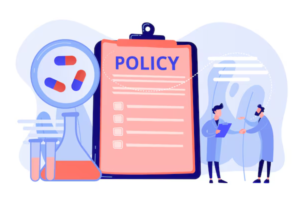Introduction
The development of Policies and Standard Operating Procedures (SOP) involves creating structured guidelines and instructions that govern the operations of a business. These documents ensure consistency, compliance, and efficiency in daily tasks and decision-making across the organization.

Key Features
Clear Guidelines
Policies outline the company’s rules, while SOPs provide detailed instructions on how to execute tasks, ensuring clarity and consistency across operations.
Compliance with Regulations
Properly developed policies and SOPs help businesses comply with legal and industry regulations, reducing the risk of violations.
Standardization of Processes
SOPs standardize tasks across departments, ensuring that all employees follow the same procedures to achieve uniform outcomes.
Improved Efficiency
Clear procedures increase operational efficiency by reducing errors, improving workflow, and streamlining decision-making.
Employee Training and Onboarding
Well-documented policies and SOPs serve as training tools, making it easier for new employees to learn company processes and adapt quickly.
Risk Management
Policies and SOPs help identify potential risks and provide guidelines on how to mitigate them, improving overall organizational safety and performance.
FAQs
1. What is the difference between policies and SOPs?
Policies define the rules and principles of a company, while SOPs provide step-by-step instructions for executing specific tasks.
2. Why are policies and SOPs important for a business?
They ensure consistency, efficiency, and compliance, helping the organization operate smoothly and meet regulatory requirements.
3. How often should policies and SOPs be updated?
They should be reviewed regularly, at least annually or when significant operational or regulatory changes occur.
4. Who is responsible for developing policies and SOPs?
Typically, management or department heads develop them, often in collaboration with legal or HR teams to ensure compliance.
5. How do SOPs help in training new employees?
SOPs provide clear instructions, making it easier for new hires to understand tasks, follow procedures, and adapt to their roles quickly.
6. What role do policies and SOPs play in risk management?
They help identify and mitigate risks by outlining proper procedures for handling specific situations, ensuring operational safety and compliance.
